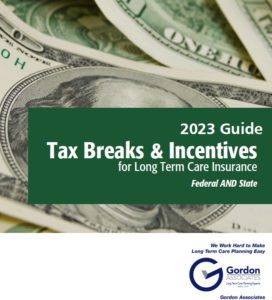Many people assume that long term care is covered under Medicare and Medicaid. Unfortunately, long term care coverage under these government plans is very limited and carries stringent requirements. That’s why the government created so many incentives to encourage people to buy their own LTCI.
Medicare Coverage For Skilled Care
In order to be covered under Medicare for a nursing home stay, you must meet these four requirements:
- You must be hospitalized for at least three days.
- You must enter a Medicare approved Nursing Facility.
- You must be in a Medicare approved bed within the approved facility.
- You must be receiving skilled care on a daily basis.
If you do meet all these requirements, Medicare will pay 100% eligible expenses for the first 20 days. For days 21-100, Medicare will pay only after a daily co-payment of $204.00 (for 2024) has been met. This is usually paid by a Medicare supplement plan, if you have one, or else you have to pay it out of pocket. After the 100th day, neither Medicare nor a Medicare supplement will pay for nursing home care. At that point, you are on your own. Medicare is designed to get us back on our feet. Medicare isn’t meant for long term care. That’s not the case when you have LTCI!
What Medicaid Covers
In order to be eligible for long term care benefits under Medicaid, you have to “spend down”—i.e., exhaust—most of your assets first.
For 2024, federal law requires that a single individual may keep just $2,000 in assets and retain $30 a month in income while in a Medicaid-covered nursing home.
For married couples, a spouse in a nursing home may transfer up to $129,084 (excluding a home and automobile) to his or her community-dwelling spouse. He or she may also transfer up to $3,853.50 in monthly income to his or her spouse.
States are required by law to seek recovery of money paid by Medicaid from an individual’s estate. But in about 40 states, there is an exception, and it comes in the form of LTCI Partnership Plans. The government has tightened the look back period to 60 months from the date of application. Click here to learn more about Partnership Plans and how they allow you to keep more of your assets.
State spend down limits and rules can vary. Please check with your state.

 To help determine if long-term care (LTC) insurance is right for you, we are offering a FREE informational guide. This is a comprehensive booklet that will answer many of your questions about LTC and assist you with your health care planning.
To help determine if long-term care (LTC) insurance is right for you, we are offering a FREE informational guide. This is a comprehensive booklet that will answer many of your questions about LTC and assist you with your health care planning. To help determine if long-term care (LTC) insurance is right for you, we are offering a FREE informational guide. This is a comprehensive booklet that will answer many of your questions about tax breaks and incentives for LTCI for federal and state taxes.
To help determine if long-term care (LTC) insurance is right for you, we are offering a FREE informational guide. This is a comprehensive booklet that will answer many of your questions about tax breaks and incentives for LTCI for federal and state taxes.